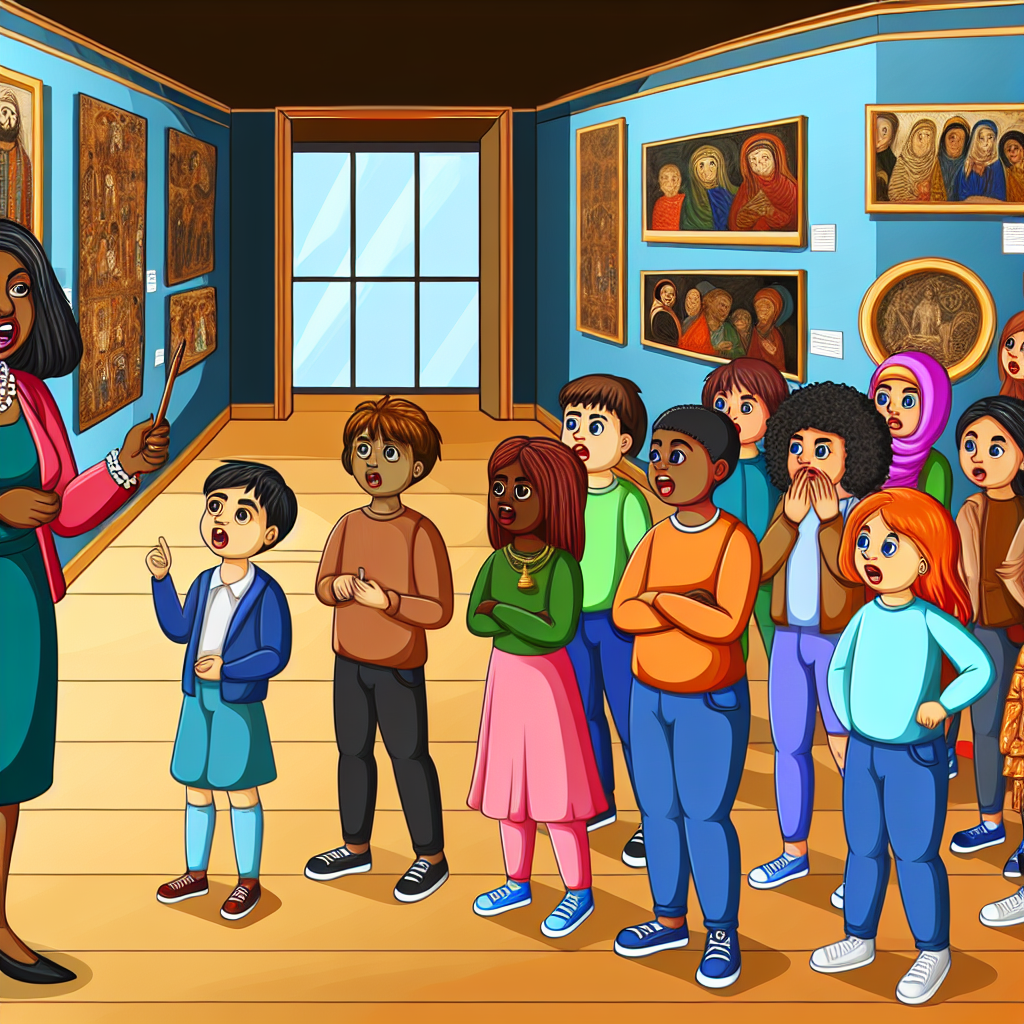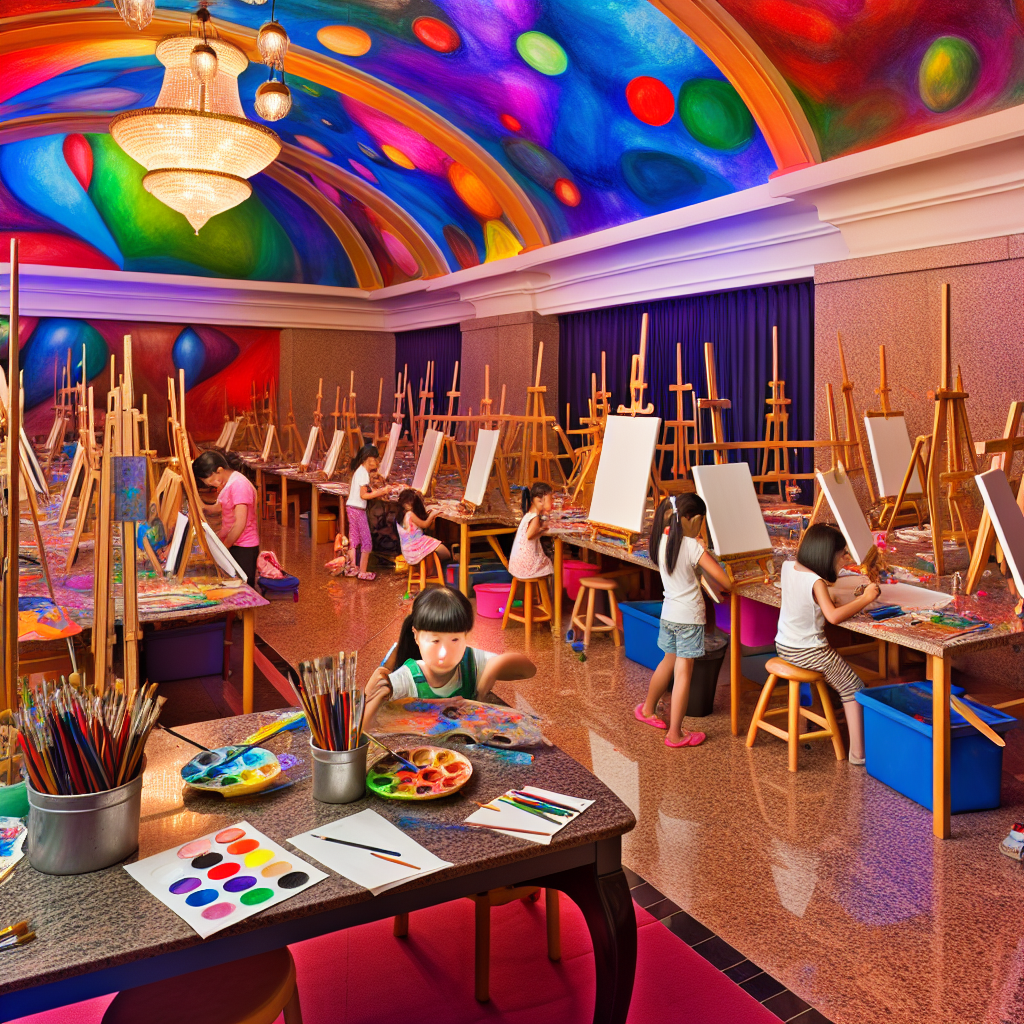Private Museum Tours: The Rise of Curator-Led Children’s Art Education
Introduction: A New Era of Luxury Art Education
Exposing children to art from an early age has long been associated with cognitive and creative development. For affluent families invested in providing world-class educational experiences, traditional museum visits are now being elevated through private, curator-led art tours designed exclusively for children. These bespoke learning experiences offer young patrons the opportunity to engage deeply with masterpieces in an intimate setting, led by experts who tailor lessons for their intellectual and emotional development.
Museums worldwide are recognizing the demand for premium educational experiences and are offering customized, after-hours tours and VIP access specifically for young learners. These private sessions, curated by esteemed art historians, educators, and museum directors, provide a more meaningful engagement with artwork—far beyond what is typically experienced in a crowded public setting. No longer mere passive observers, children are invited to interact with art through storytelling, critical thinking exercises, and hands-on artistic activities, creating a personalized and immersive environment.
For families who appreciate luxury, personalized art tours offer a culture-enriching alternative to traditional classrooms. Whether visiting the Louvre in Paris, The Met in New York, or the Uffizi Gallery in Florence, parents now have the ability to customize learning journeys based on their children’s interests. Want to explore Impressionism, Renaissance art, or ancient sculptures? A top curator can lead a perfectly tailored session—ensuring that young learners grasp key concepts while nurturing their creative instincts.
Recent studies indicate that early exposure to art not only fosters creativity but also enhances problem-solving skills, empathy, and cognitive flexibility. Navigating museum collections with expert insight provides countless benefits, including improved visual literacy and historical awareness, shaping children into globally-minded individuals. With institutions responding to growing requests from elite clientele, renowned museums are now extending curator-led offerings that enhance children’s development in a way conventional school visits cannot.
As we witness a growing trend toward immersive and exclusive educational experiences, private museum tours are emerging as a benchmark in luxury art education. Parents now have the opportunity to provide their children with rare and exceptional interactions with the world’s most treasured artworks—an investment that offers long-term intellectual and cultural dividends.
The Science Behind Curator-Led Art Education: Why It Works
Scientific studies underscore the profound impact of art education on children’s cognitive, emotional, and social growth. According to research conducted by the National Endowment for the Arts, students who experience early exposure to the arts demonstrate higher academic performance, greater problem-solving skills, and increased adaptability in the face of new challenges. Expanding upon this, a 2019 study by the Brookings Institution found that students who engaged in structured museum visits displayed a 9% improvement in critical thinking and retention skills compared to their peers without such exposure.
Boosting Emotional Intelligence Through Art
From a psychological perspective, private art education reinforces emotional intelligence in children. Neurological studies from the University of Arkansas Department of Education Reform found that children who visit museums exhibit increased levels of tolerance and empathy, fostering social awareness and emotional depth. This is particularly beneficial for children raised in privileged environments, ensuring they develop a well-rounded understanding of diverse cultures, historical narratives, and artistic evolution.
The Role of Experiential and Interactive Learning
Furthermore, private curator-led tours provide an optimal learning environment by removing distractions and allowing for high-engagement, immersive storytelling—a key factor in information retention. The Harvard Graduate School of Education emphasizes that experiential learning—where students actively engage with subjects—leads to stronger cognitive connections and academic success. By learning from an expert who can tailor lessons to their developmental needs, children foster a genuine appreciation for art while honing their analytical and creative thinking abilities.
Studies also reinforce the importance of interactive learning. The Reinvesting in Arts Education Report by the President’s Committee on the Arts and the Humanities stipulates that arts education enhances neuroplasticity, the brain’s ability to rewire itself in response to learning new information. This directly translates to improved memory, logical reasoning, and innovative thinking—making a compelling case for investing in private museum education tailored by experts.
Creating a Stress-Free Learning Environment
Additionally, engaging with art in a private setting alleviates the stress and overstimulation that can occur in crowded museum environments. Neuroscientific findings support the idea that calm, curated educational settings enhance long-term information retention and creative engagement. It is no surprise that leading museums such as the V&A Museum in London, the Solomon R. Guggenheim Museum in New York, and the Louvre in Paris have expanded private, child-focused art education options to meet the rising demand among elite families.
With a growing body of scientific evidence indicating that luxury education experiences, such as private museum tours, contribute significantly to intellectual and emotional development, parents are increasingly seeking these bespoke services. The fusion of art appreciation with high-level education, guided by world-renowned curators, is revolutionizing the way children interact with culture—setting them on a path toward lifelong curiosity and intellectual refinement.
Conclusion: The Future of Luxury Art Education
Private curator-led museum tours are redefining luxury education for children of discerning families. Beyond the aesthetic appeal of fine art, these exclusive experiences foster higher cognitive function, emotional intelligence, and global awareness. As museums continue to adapt to the needs of affluent patrons, highly-tailored tours, led by expert curators, provide an unparalleled gateway to cultural enlightenment.
Backed by scientific findings linking art engagement to enhanced intelligence and emotional depth, these bespoke experiences offer valuable, interdisciplinary learning far beyond conventional schooling. For parents invested in cultivating a refined, well-rounded future for their children, private museum tours represent not just an indulgence, but an essential educational investment.
**Summary**:
Private, curator-led museum tours are redefining luxury education for affluent families. These exclusive experiences allow children to engage deeply with masterpieces, guided by expert art historians and museum directors. Backed by scientific evidence, these tailored learning journeys foster cognitive, emotional, and social development, offering an unparalleled gateway to cultural enlightenment. As museums adapt to meet the growing demand for premium educational services, private museum tours are emerging as an essential investment in a child’s intellectual and cultural future.

Dominic E. is a passionate filmmaker navigating the exciting intersection of art and science. By day, he delves into the complexities of the human body as a full-time medical writer, meticulously translating intricate medical concepts into accessible and engaging narratives. By night, he explores the boundless realm of cinematic storytelling, crafting narratives that evoke emotion and challenge perspectives. Film Student and Full-time Medical Writer for ContentVendor.com




